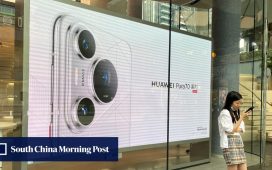SINGAPORE – A facility at the National University of Singapore (NUS) is developing fast-charging batteries that should allow an electric vehicle (EV) to be fully charged in the same time that it takes to pump petrol at a gas station.
Made using the metal niobium, these batteries are targeted to last a full decade longer than those powering EVs today, and possibly outlast the vehicle itself.
The batteries are among the key projects of a new $5 million battery innovation NUS facility – backed by the National Research Foundation – that was officially opened on May 22.
It marks NUS’ entry into the race to create the next-generation of batteries, as lithium-ion batteries are currently in short supply amid an electrical energy boom.
The lab was launched in collaboration with Brazilian company CBMM, the world’s leading supplier of niobium, to develop fast-charging batteries with a lifespan of 30 years.
The facility allows developers to build and test all parts of their battery prototype in one site instead of them going around to multiple manufacturers to develop each battery part, said Professor Antonio H. Castro Neto, director of NUS’ Centre for Advanced 2D Materials.
The centre will be home to the new facility – the CBMM-CA2DM Advanced Battery Laboratory.
Manufacturers can use a host of battery testing tools, such as a furnace to grow new materials and X-ray scanners to study the properties of elements used.
The lab also has a dry room – where humidity is maintained at 1 per cent – and a no-oxygen chamber for battery testing, as well as a fire-proof room where the durability of prototypes can be tested safely.
“The project is very much a pilot line for battery production,” said Prof Castro Neto.
“It’s not a large-volume facility like a gigafactory; the idea is to produce enough batteries for third-party makers to test, get a first look at, and get (them) approved for market use.”














